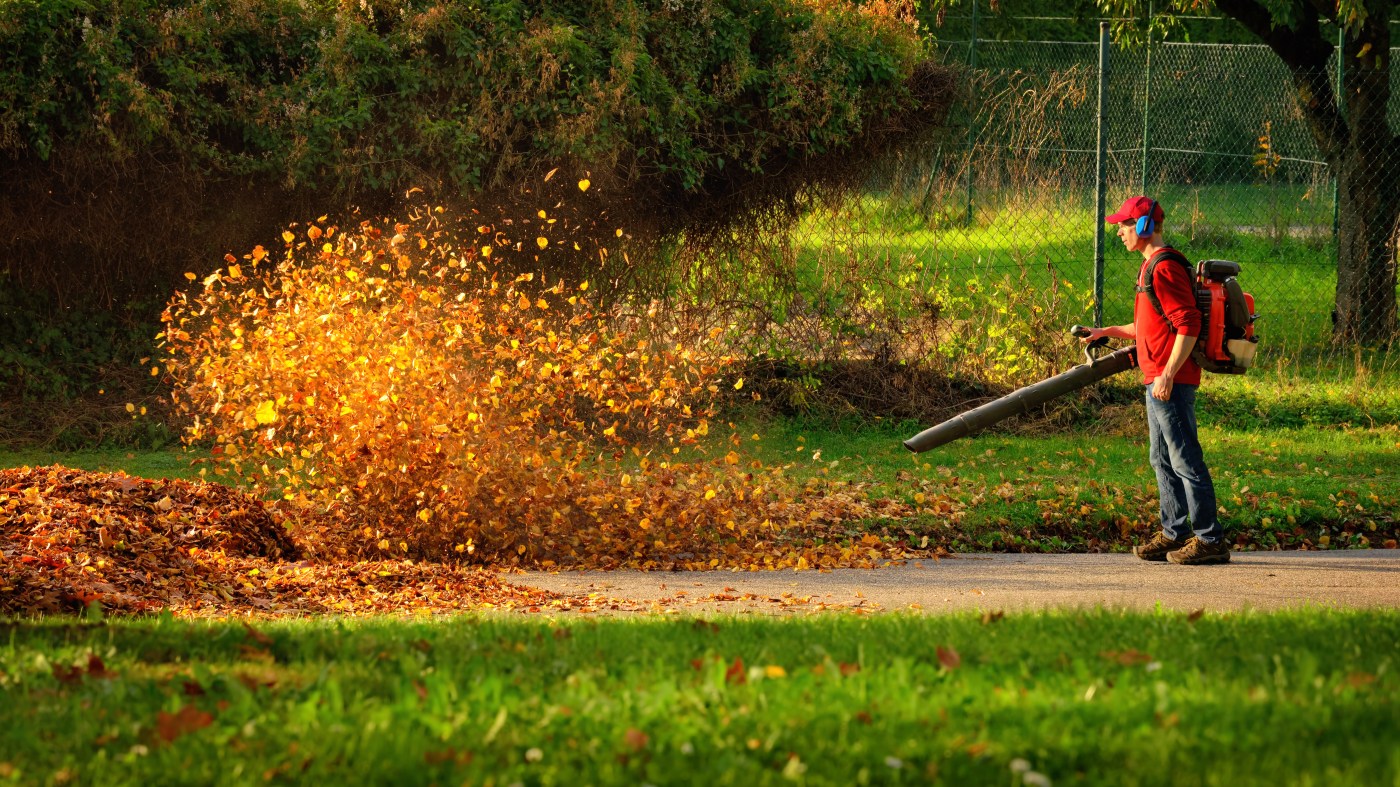
Cambridge looks to join other Massachusetts cities, towns in banning gas-powered leaf blowers
It may be only a matter of time until residents and businesses in Cambridge are banned from using gas-powered leaf blowers, which officials say are taking a toll on the environment and public health.
A proposed ordinance in front of the Cambridge City Council looks to eliminate the gas-powered tool for good, doing away with seasonal restrictions that have been in place for years.
The License Commission is set to hear feedback from residents and commercial leaf blower operators on Monday regarding the proposal that would implement a gradual phase-out of the equipment. The council’s Ordinance Committee will then consider the input on Tuesday.
If approved, residents would be prohibited from using gas-powered leaf blowers starting in March 2025. The ban on commercial and city uses would go into effect two years later.
Officials not just in Cambridge but also in nearby cities and towns are eager to swap in gas-powered lawn equipment for those powered by batteries because of the amount of pollution and noise they emit.
In 2020, lawn and garden equipment spewed an estimated 614,932 tons of carbon dioxide in Massachusetts — an amount equivalent to the pollution from 135,371 typical cars, according to an October report conducted by MASSPIRG, a public health advocacy group.
Officials and advocates also point to research that shows how gas-powered lawn equipment is a “well-known contributor to heart and lung disease, stroke, and premature death.”
“We’ll position ourselves well to take up this very important and I think very exciting step,” Councilor Patricia Nolan said earlier this month when the council approved her motion to put the proposal to the Ordinance Committee.
“As we know,” she said, “it’s the emissions that have been quite startling in terms of their impact but also the environmental injustice of having workers use these machines end up with permanent health damage to their lungs and ears.”
Through research and discussions with city officials, Nolan said she feels the best approach in addressing lawn equipment is to think about actions that can be taken immediately instead over time as technology advances. The city needs to pressure the state for there to be changes across the entire Commonwealth, she said.
At the State House, Rep. Michelle Ciccolo, D-Lexington, continues to file legislation that would establish a grant and loan program for small businesses and municipalities to transition landscape equipment to tools that are low noise and low emissions.
The program would be similar to a MassSave incentive initiative that offers residential battery-powered lawn equipment rebates up to $75 for a lawnmower and $30 for other tools.
“It’s essential we aggressively move forward with decarbonization efforts in every sector,” Ciccolo said in a statement. “Exposing our workers, children, and neighbors to toxic chemicals coming from lawn care is unacceptable.”
If the Cambridge ordinance is approved, the city manager would be requested to develop incentive programs to “layer on existing MassSave benefits.”
But even with the assistance for contractors, city resident James Kelley opposes the proposal.
President of Cambridge Landscape, Kelley said gas-powered leaf blowers are especially needed during peak business times of the year to meet schedules, clean up sites and manage employees. He said his business has already invested in electric equipment including sit-down, stand-on and push mowers, weed wackers and leaf blowers.
“I embrace that, but I’m a realist,” Kelley said in September. “The city and the state, if they’re going to push people to do this, are going to have to help businesses do it. … They’re going to have to increase budgets.”
Cambridge is not alone in considering permanent bans of gas-powered leaf blowers. Lexington, Arlington, Belmont, Concord and Dedham have approved phased-in year-round bans, while other municipalities have opted for seasonal restrictions.
Cambridge has switched to battery-operated portable leaf blowers at the city level, and effective this past spring, landscaping contracts administered by the Department of Public Works are no longer allowed to use blowers that are gas powered.
Landscapers were resistant in 2019 when the city previously tried to ban all leaf blowers, said John Nardone, deputy director of public works. In a September meeting, he urged the council to focus on just banning gas-powered blowers
“If we were to put in a ban in place on gas-powered lawn equipment across the board, we would have a lot of difficulty getting contractors,” he said.
Officials have admitted there would be challenges if the city adopts an all-electric leaf blower program.
Concerns include how it may make cleaning debris less efficient and effective without exemptions in place and how enforcement would be difficult since there are only two employees who “do not have the capabilities of issuing ‘on the spot’ tickets.
Resident Ed Abrams is all for the ban, one that he said should not include any exemptions to city employees.
“The amount of emissions that come from using gas-powered equipment is enormous,” he said.
Cambridge City Hall (Staff Photo By Nancy Lane/MediaNews Group/Boston Herald)


